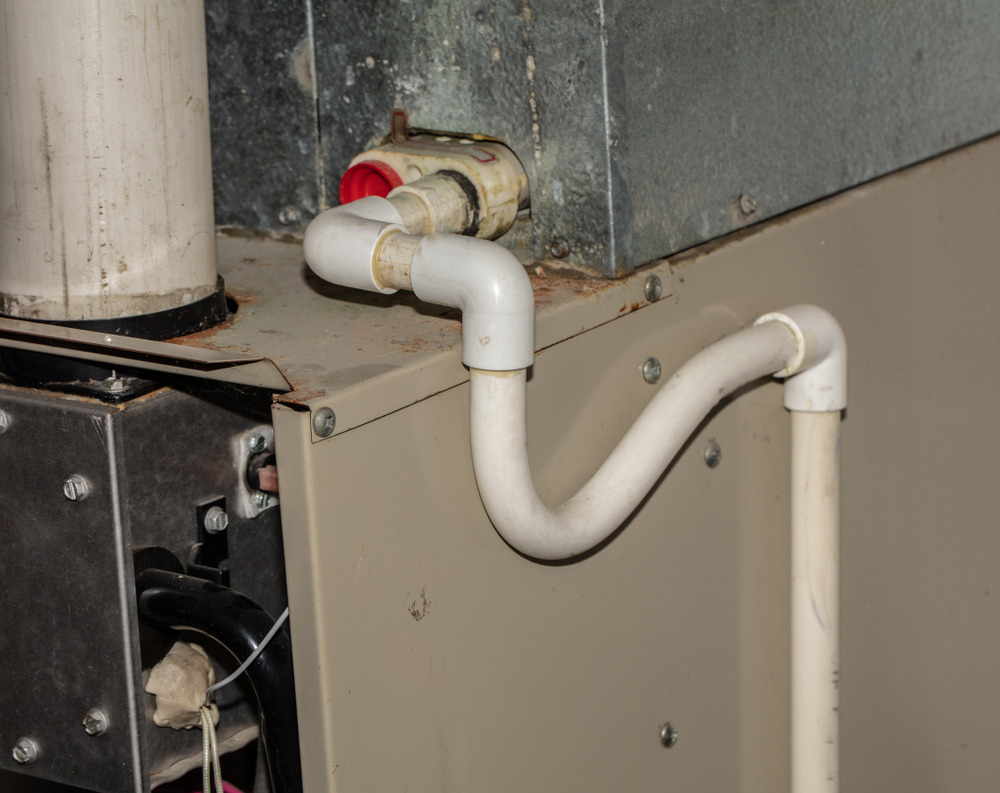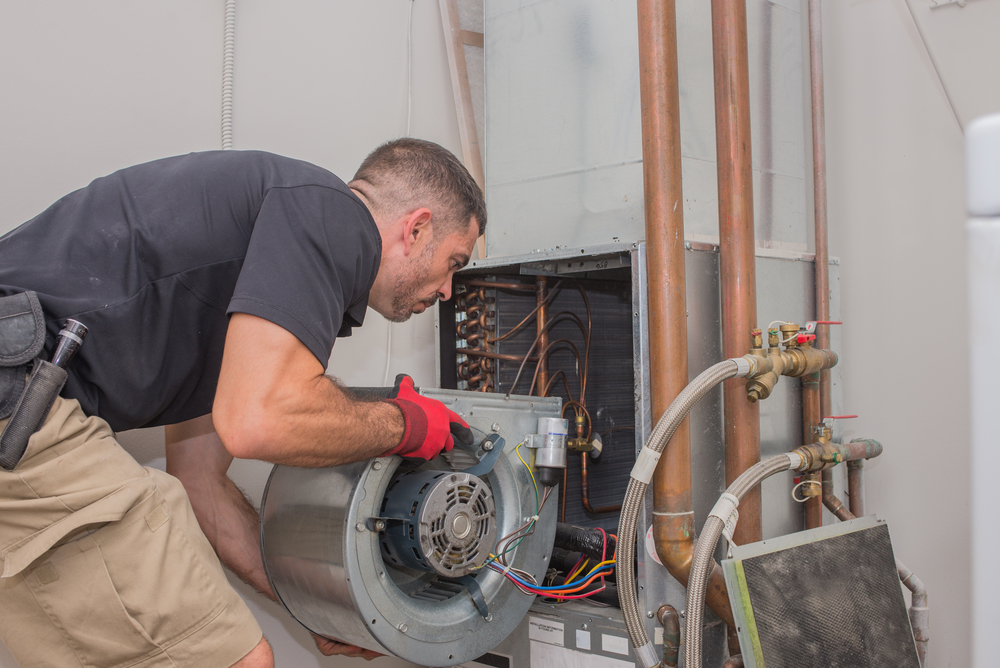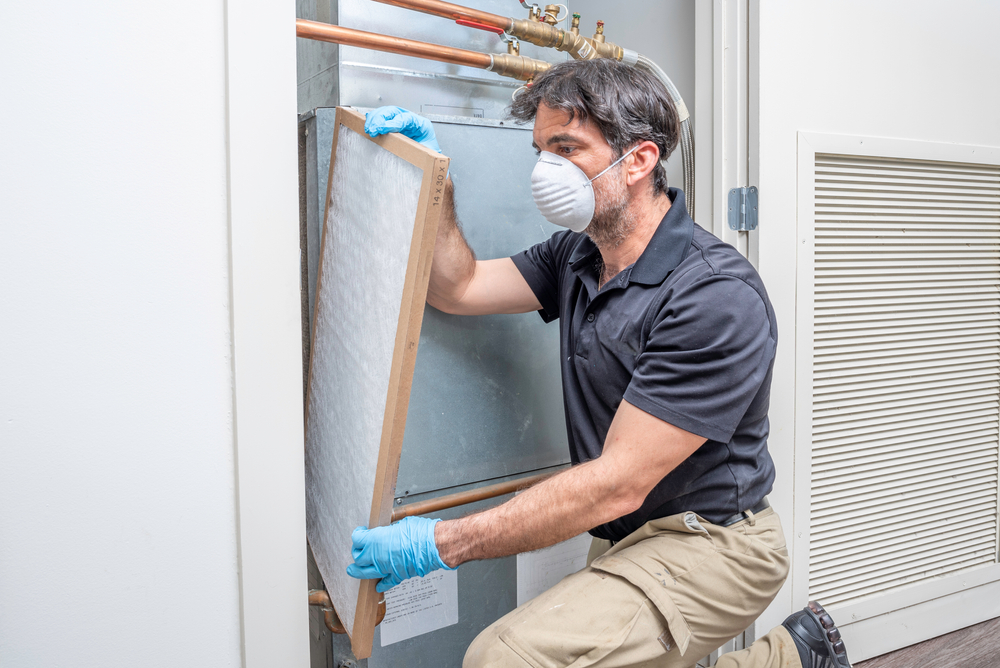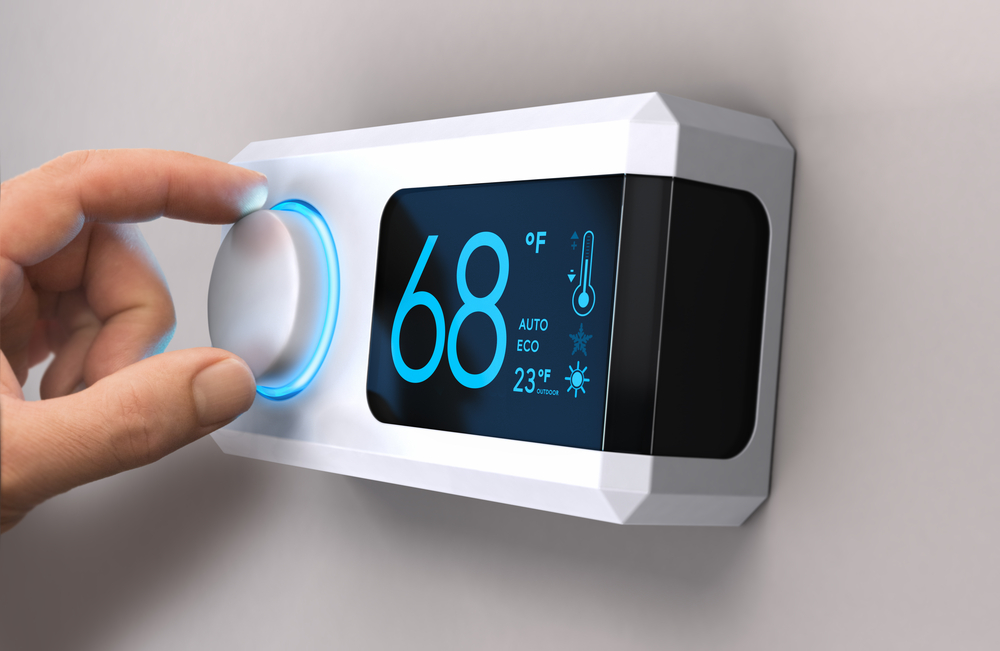Your air conditioner is supposed to keep you comfortable at home, but that’s not always possible. For example, your AC may keep freezing up when you need it most, and that’s a huge headache. So, why does my AC keep freezing?
Your AC may keep freezing if you don’t change the air filter every 30 to 90 days. This can also happen if you are low on refrigerant or if the line is corroded and leaking. The evaporator coil can freeze if it is dirty or if the drain line gets clogged with debris. Don’t run your AC if the outside temperature is below 60 degrees.
Frozen evaporator coils throw your AC into disarray, and the blower motor may eventually fail. You can largely avoid all of this if you replace your filter at least every 90 days. It’s also essential to have your air ducts cleaned every 3-5 years. Follow along as we explore what you can do if your AC keeps freezing.
Reasons Why Your AC Freezes Up
While AC units don’t entirely “freeze”, the evaporator coil can. Unfortunately, this essential component can throw your AC unit out of whack if it freezes or gets damaged. However, an AC unit can freeze up and stop working due to many problems, such as dirty filters and broken blower motors. Let’s look at the main reasons why your AC keeps freezing and see how you can prevent it.
1. Your AC is Low on Refrigerant
When your AC gets low on refrigerant, it sets off a chain of events. This can cause your evaporator coils to freeze, as well as the condenser’s panels. Your AC can no longer properly transfer heat when the refrigerant gets low.
Because of that, your AC will get too cold, slow down, and key components will quit working. In many cases, your refrigerant can get low because of a leak. This typically happens when the copper tubing gets corroded.
Turn your AC off right away if you suspect a refrigerant leak. It’s best to let an HVAC technician handle this problem as refrigerant leaks can be dangerous. The technician will likely have to replace the refrigerant line.
2. Clogged Drain Line

AC drain lines, or condensate lines, get rid of the moisture that your HVAC system produces. Both heating and cooling create moisture, and the drain line ensures it won’t damage the unit or your home. Over time, the drain line can get clogged with debris and sludge, and water will struggle to pass through it.
This happens more easily if the drain line is installed at the wrong angle, but it can even happen if the angle is correct. Mold can grow within the drain line and make the problem much worse. Eventually, the water will sit so long that it causes the evaporator coils to freeze.
Even if the coils thaw out, they may freeze again because water still can’t pass through the drain line. Luckily, an HVAC professional can remove sludge, mold, and debris from the line to clear the clog.
The line will flush more easily if you replace your air filter every 30-90 days. That will ensure the airflow is strong enough for your drain line to flush without much resistance.
3. Broken Blower Fan Motor
A common reason why AC units stop working and evaporator coils freeze is that the blower is broken. Blower motors can fail for many reasons, such as faulty wiring and blown fuses. In most cases, you must simply replace the blower motor altogether.
You may notice your energy bills decrease after you replace your blower motor. Old blower motors and AC fans must typically work harder to less effect, and that leads to high bills. You also won’t likely have to deal with frozen evaporator coils nearly as often if you replace your defective blower motor before it’s too late.
4. Dirty Evaporator Coil

While evaporator coils can freeze for many reasons, sludge, mold, and debris are among the most common. Evaporator coils can easily become dirty if you fail to change your air filter every 90 days. The dirt, dust, and debris that your filter would otherwise catch can wind up in other parts of the system.
That includes the evaporator coil. An evaporator coil can’t get enough heat when it’s too dirty, and that’s why it may freeze. The only way to fix this problem is to repair or replace the frozen coil.
Frozen coils are fixable when thawed. In that case, the technician must thoroughly clean the evaporator coil to ensure it doesn’t freeze again. However, you may simply need to replace the coil if it’s beyond repair. It can cost up to $4,000 to replace a damaged evaporator coil.
5. Damaged Condenser Fins
The outdoor condenser unit is easy to overlook, but it can explain why your AC keeps freezing up. Condenser units have “fins” on the outside that can easily become dirty and get damaged. If you fail to clean your condenser unit, the fins can become too dirty and affect the condenser unit’s performance.
The fins can also become bent if you’re too rough with them or if something knocks into the unit. Carefully inspect the fins occasionally to make sure they’re straight. If they’re not straight, you can use an air conditioner fin tool, or comb, to safely fix the fins.
Damaged condenser fins impact heat transfer and force your AC unit to work harder. You can get around this if you use a condenser fin comb to straighten the fins.
6. Dirty Air Filter

A dirty air filter can disrupt your entire HVAC system. Lots of dirt, dust, and debris move throughout an HVAC system as it runs. Filters catch this debris so it doesn’t wind up in key components, such as the drain line and evaporator coil.
The average air filter can continue to catch debris for up to 90 days or even longer in rare cases. However, some homeowners must replace the air filter after just one month. Not only does the debris wind up in the evaporator coil when the filter is dirty, but it can also spread throughout your house.
Your AC will work harder than it should, but you won’t feel much airflow. The drain line may clog and cause your evaporator coil to freeze, and that can become an expensive problem. You can avoid this if you keep track each time you put in a new filter. Set a schedule to replace the filter every 30-90 days or as needed so your AC doesn’t keep freezing.
7. Debris in the Ductwork
The same dust and debris that your filter catches can also wind up in your air ducts.
Your home’s ductwork is essential as it carries air through your house and comes out through the vents. That said, your air ducts can become clogged with debris if you don’t change the filter often enough.
This happens quickly if you have several pets who shed a lot and your house is dusty. The restricted airflow means that your evaporator coil won’t get enough air. Because of that, the coil won’t be able to stay warm enough, and it may freeze.
Dirty ductwork can also create a big mess in your house. What little air can escape the vents may carry dust and debris that will settle on your furniture and counters. This can also lead to poor indoor air quality at your home. Hire HVAC technicians to clean your air ducts every 3 to 5 years to avoid clogs and frozen evaporator coils.
8. Extreme Winter Weather
Your AC will keep freezing up if you live in an area with extreme winter weather. It’s a mistake to run your AC during cold weather. Not only is it redundant, but it can also reduce the pressure within your HVAC system.
The condensation within your AC is more likely to freeze when the pressure and temperature drop.
You can damage your AC and it will freeze up if you run it when the outside temperature is under 60-62 degrees Fahrenheit. Instead, simply switch over to heat but keep the temperature reasonably low if you’re worried about getting too hot.
How Do You Unfreeze an Air Conditioner Fast?
The best way to unfreeze an air conditioner fast is to run the fan. This will help warm up the frozen evaporator coil and give it time to thaw out. However, you shouldn’t run the fan if you suspect a refrigerant leak.
That’s because refrigerant is dangerous to inhale when it enters the air, and it can be dangerous. If it’s a matter of a dirty filter, simply replace the filter, turn off the AC, and set the fan to “on”. The system won’t get enough airflow if you don’t replace the filter first.
It’s important to turn off the air conditioning before you run the fan. Otherwise, the air will be too cold to thaw out the frozen evaporator coil.
Keep an eye on the drain pain as it will likely fill with water quickly as the ice melts. You may need to empty it quickly so it doesn’t sit and become moldy.
So, How Do I Stop My AC From Freezing Up?
The best way to stop your AC from freezing up is to replace the filter every 30 to 90 days. Dirty air filters can cause debris to clog the drain line and evaporator coil.
A dirty evaporator coil can freeze, and this can damage your AC’s blower motor and fan. Your AC may also keep freezing if the refrigerant line is corroded and leaking. Have an HVAC technician clean your drain line, replace your evaporator coil, and replace the drain line if necessary.


